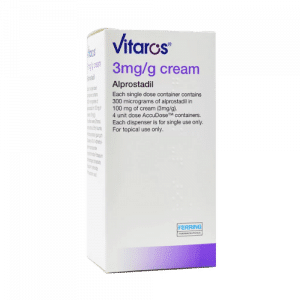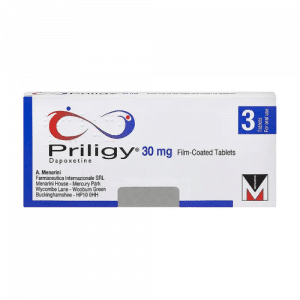
Nitrofurantoin MR 100mg: First-Line Cystitis Treatment
Nitrofurantoin MR (Modified Release) 100mg capsules are a proven first-line treatment for uncomplicated cystitis in women. This antibiotic efficiently targets the bacteria responsible for urinary tract infections, offering relief within 24 hours. Its modified-release formula ensures consistent medication levels for effective symptom management. Suitable for a short 3-day course, Nitrofurantoin MR is favored for its high efficacy against bacteria with low resistance rates, making it a more reliable choice than alternatives for many. Ensure you take it with food or a milky drink to enhance absorption and effectiveness.
Nitrofurantoin MR
£14.99
Product Information
About Nitrofurantoin MR
Choosing the right antibiotic for cystitis
The information below is about nitrofurantoin capsules. There is a separate page about trimethoprim tablets, the alternative antibiotic available from Dr Fox for cystitis in women. General information about cystitis and standby treatment, and selecting the right antibiotic, can be found at the cystitis medical information page. Please also read the manufacturer’s patient information leaflet supplied with nitrofurantoin capsules.
Nitrofurantoin is an antibiotic commonly used to treat uncomplicated cystitis in women. In the past few years, nitrofurantoin has generally replaced trimethoprim as the first-line treatment for cystitis. More of the bacteria that cause cystitis are becoming resistant to trimethoprim and currently (2021) nitrofurantoin is usually a more effective antibiotic. Approximately 30% of infections are resistant to trimethoprim compared with 3% resistance to nitrofurantoin. Trimethoprim is still widely prescribed for cystitis and many women find it works for them and prefer it. Similarly many women now prefer nitrofurantoin. Choosing between the two is discussed in the cystitis medical information which forms part of the online consultation for cystitis.
For further information see NHS – nitrofurantoin.
Taking Nitrofurantoin MR
For simple uncomplicated cystitis: take nitrofurantoin 100mg capsule twice daily for 3 days (12 hours between doses) with food or a milky drink. Please note that the manufacturer’s patient information leaflet states 7 days – a standard course of cystitis treatment has now been reduced to 3 days. Improvement is usually seen within 24 hours and symptoms are usually completely resolved after 3 days. If symptoms are not improving, or are worsening, consult a doctor.
Please note that while taking nitrofurantoin, urine will usually become dark yellow or brown. This is a normal effect and you should not stop the treatment.
Dr. Fox supplies nitrofurantoin 100mg capsules from a range of different pharmaceutical companies, but always UK-licensed medicines. Please note you may receive a plain box with 6 capsules if a larger pack must be split (e.g. the brand Macrobid is supplied by manufacturers in packs of 14 capsules).
Cautions and contraindications
Nitrofurantoin is not suitable for everyone. Patients with some medical conditions or who are taking interacting medicines cannot take them. Checks for suitability are carried out in the online consultation which is part of the ordering process.
DO NOT take nitrofurantoin capsules if the following apply:
- You are allergic to nitrofurantoin.
- Your kidneys do not work very well, if in doubt check first with your doctor.
- You are pregnant and about to deliver your baby.
- You have porphyria G6PD (glucose-6-phosphate dehydrogenase) deficiency.
- You are breastfeeding and your baby has G6PD deficiency.
Discuss with your regular doctor before taking nitrofurantoin, if you are suffering from any chronic illness including:
- Diabetes.
- Lung disease, including asthma.
- Liver disease.
- Ongoing anaemia.
- Persistent low vitamin B, or folate.
In some instances, a short 3 day course to treat cystitis may be prescribed, or an alternative antibiotic may be preferred.
Interactions
Nitrofurantoin may affect or be affected by some other medications. Nitrofurantoin should not usually be taken at the same time as:
- Antacid indigestion remedies.
- Probenecid and sulfinpyrazone (rarely used long-term gout treatments).
- Acetazolamide (glaucoma, altitude sickness).
- Citrate or bicarbonate to neutralise urine acidity.
- Other antibiotics of the quinolone (floxacin) type.
- Oral typhoid vaccine (not usually used).
If you are in doubt about any of these medicines ask your doctor or pharmacist.
Side effects and severe reactions
Most medicines can cause side effects in some people. With Nitrofurantoin MR the frequency of side effects is not known, but they are generally mild, and settle when the medication is stopped. With a short 3-day course to treat cystitis, it is very unlikely that more serious side effects would occur.
Allergic reactions
All medicines can cause allergic reactions although serious allergic reactions to medications are rare. Nitrofurantoin has on rare occasions been linked to all types of allergy reactions from skin rashes, and angioedema to anaphylaxis.
Very rarely, there is a serious reaction in the lungs to nitrofurantoin. The reaction can occur within the first week but more often is a slow development (if continuing to take nitrofurantoin long term), with increasing breathing difficulty and other symptoms.
If you think you are having an allergic reaction to nitrofurantoin, stop the medication and contact your GP, out-of-hours service, or telephone 111 or see 111.nhs.uk online. In an emergency telephone 999.
Other side effects
Mild – usually settles quickly
- Feeling sick (nausea) and headache.
- Loose stools, diarrhoea.
- Loss of appetite, stomach ache, and being sick (vomiting).
- Dizziness, drowsiness.
More serious – stop medication and consult a doctor
- Jaundice (yellow skin and whites of eyes) from an inflamed liver.
- Bruising, sore throats, fever, anaemia, from damaged blood cells.
- Changes in skin sensation or muscle function, from nerve damage.
- Severe headaches, sometimes with increased pressure inside the skull.
- Mood changes, confusion.
- Blurred vision.
- Inflamed salivary glands.
- Severe stomach aches and vomiting from an inflamed pancreas.
- Short-term hair loss.
- Altered sense of feeling, or pins and needles, muscle weakness, or other changes in the nervous system.
Pregnancy and breastfeeding
If pregnant or breastfeeding it is best to ask your doctor or pharmacist for advice before taking any medicine.
As far as it is known nitrofurantoin may be used in pregnancy. However it should not be used during labour or delivery because there is a possibility that use at this stage may affect the baby.
Very small amounts of nitrofurantoin are found in breast milk, so it is usually recommended to avoid breastfeeding when taking nitrofurantoin.
Dr Fox does not supply cystitis treatment for women who are pregnant or breastfeeding.
Other measures that can help cystitis
- Increase the amount of water you are drinking each day to 2-3 litres (4-5 pints, or 10-12 glasses or mugs).
- Avoid alcohol, caffeine, and fizzy drinks which can irritate the bladder.
- Take paracetamol or ibuprofen for pain if necessary.
Sometimes cystitis will go away by itself in a few days without antibiotic treatment. If symptoms are mild, self-treatment and ‘wait-and-see’ for a few days may be the best approach. If symptoms are severe, or worsening, antibiotics are usually preferred. Women who have repeated infections will usually know if their symptoms are likely to stop on their own.
Related Products
-
Erectile dysfunction medication
Eroxon ED Treatment Gel – 4 Pack
Rated 0 out of 5£25.00 Add to basket -
-
-




